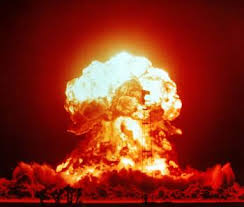记忆方法
将“annihilate”拆分为“annul”(取消)和“iate”(动词后缀,表示做某事),想象“annul”了一个东西,以至于它被彻底地消灭或摧毁,从而形成“annihilate”这个单词,意味着彻底消灭或摧毁。
以上内容由AI生成, 仅供参考和借鉴
中文词源
annihilate 消灭
前缀an-同ad-. 词根nil, 零,词源同no,见nihilism, 虚无主义。
英语词源
- annihilate
-
annihilate: [16] Annihilate comes from the past participle of the late Latin verb annihilāre, meaning literally ‘reduce to nothing’ (a formation based on the noun nihil ‘nothing’, source of English nihilism and nil). There was actually an earlier English verb, annihil, based on French annihiler, which appeared at the end of the 15th century, but it did not long survive the introduction of annihilate.
=> nihilism, nil - annihilate (v.)
- 1520s, from an obsolete adjective meaning "reduced to nothing" (late 14c.), originally the past participle of a verb, anihil, from Old French annichiler (14c.), from Late Latin annihilare "to reduce to nothing," from Latin ad- "to" (see ad-) + nihil "nothing" (see nil). Related: Annihilated; annihilating.
权威例句
- 1. The human race has enough weapons to annihilate itself.
- 人类有足够的武器灭绝自己。
- 2. Such wonderful and wellestablished facts at once annihilate the theroy.
- 这些奇异而确定的事实即刻可以推翻这种学说.
- 3. An atomic bomb can annihilate a city.
- 一枚原子弹能毁灭一个城市.
- 4. I wished to annihilate the tedious intervening days!
- 我多么希望那些无聊的时光快快消逝啊!
- 5. A real or virtual photon may spontaneously annihilate.
- 一个实的或虚的光子可以自发地湮没.
